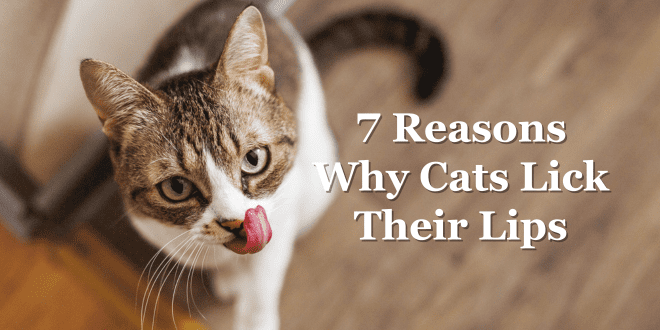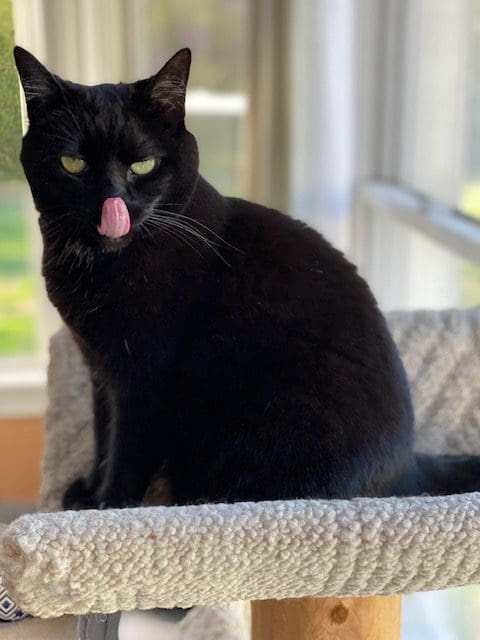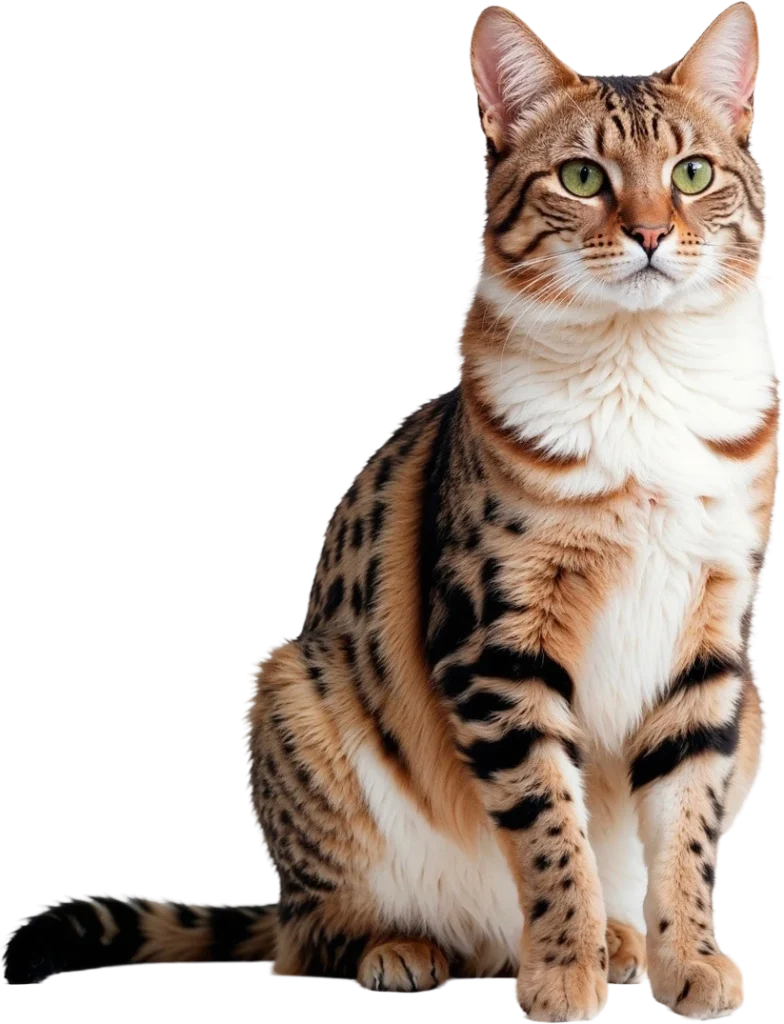
You’ve seen your cat licking their lips countless times. Cats are known for their fastidious grooming habits so it’s perfectly logical to assume frequent lip licking is just a normal part of feline hygiene, right? Is there ever a reason to be concerned about this behavior? Lip licking is normal in most cases but there are some instances where the behavior could indicate something more serious is going on. What’s normal lip licking and when should you be concerned?
Here are some reasons why cats lick their lips, including when you may need to pay closer attention and consult your veterinarian about the behavior.
1. Grooming
The most common reason cats lick their lips is for post-meal grooming. The behavior is based on a cat’s instinct to remove scent traces after devouring prey. Leftover scents could be detected by other prey and alert them that the feline predator is in the area. Since cats are also prey themselves because of their small size, it’s important to remove scent traces after eating so they don’t put themselves in danger by alerting larger potential predators.
2. Oral Pain
Lip licking can indicate oral disease or mouth pain. You may also notice drooling. This drooling is different from the drooling displayed when a cat is happy (usually while kneading). Along with frequent lip licking and drooling, the cat may paw at her mouth, show a decline in appetite, and you may notice a foul mouth odor.
3. Fear
Cats who lick their lips when there’s no food present may be experiencing nervousness or fear. To more accurately determine this is the cause, observe the immediate circumstances and pay attention to other body language signals as well.
4. Nausea
Lip licking accompanied by swallowing may mean the cat is feeling nauseated. Vomiting may occur shortly after.
5. Upper Respiratory Illness
Upper respiratory issues or allergies may cause cats to lick their lips frequently. If there is nasal congestion, you may notice more lip licking. After sneezing, it’s also typical for cats to lick their lips.

6. Excessive Salivation
Ptyalism (excessive salivation) triggers frequent licking of the lips. This could mean more serious health issues are present. Some causes could include ingestion of a foreign body, tumor, periodontal disease, nausea, mouth injury, abscess, kidney disease, upper respiratory illness, ingestion of a toxic substance, and more.
7. Dry Mouth
Extreme dry mouth, known as xerostomia, may result in frequent lip licking. Underlying health conditions may be the cause, such as fever, dehydration, kidney or liver problems, endocrine disorders, side effects from certain medications, and more. Cats may also experience dry mouth when very nervous or fearful.
Need More Information?
The above circumstances aren’t the only reasons a cat may engage in lip licking. If you’re concerned about the frequency or circumstances in which your cat displays the behavior, consult your veterinarian. The information in this article is not intended as a medical diagnosis and is not to be viewed as a replacement for your cat’s veterinary care.
For more information on cat behavior and training, check out the best-selling books by Pam Johnson-Bennett. Pam’s books are available at bookstores and online. We’ve included Amazon links here on our website.


